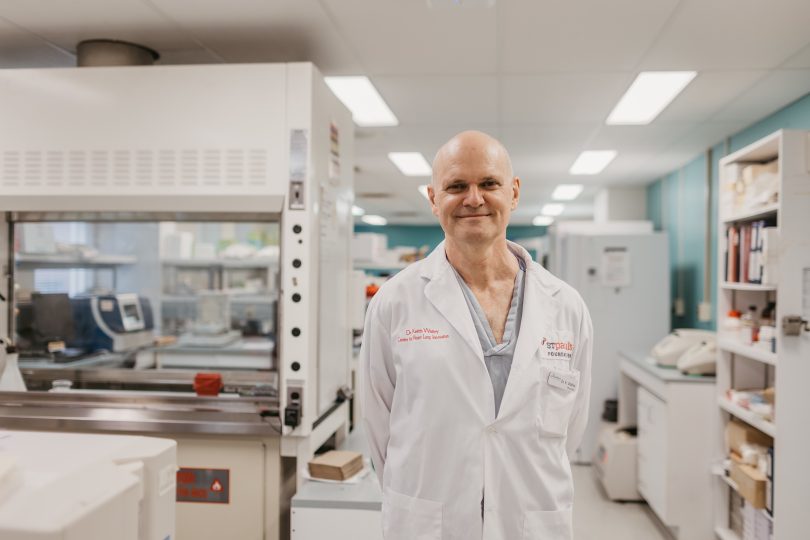 Dr. Keith Walley has been named as a Member of the Order of Canada.
Dr. Keith Walley has been named as a Member of the Order of Canada.
Dr. Keith Walley, a senior clinician-scientist for the Centre for Heart Lung Innovation, attending physician at the St. Paul’s Hospital Intensive Care Unit, and Professor of Medicine at the University of British Columbia, has been appointed as a Member to the Order of Canada.
The award recognizes outstanding achievement, dedication to the community, and service to the nation. Dr. Walley has made extraordinary contributions to medical science that have changed clinical practice throughout the world, particularly in the understanding and treatment of sepsis.
Sepsis research shaped clinical practice worldwide
Throughout his career, Dr. Walley has made discoveries in medical research that have impacted clinical care internationally. Much of his research focuses on the mechanisms behind organ failure in sepsis, a condition caused by the body’s response to severe infection.
“Sepsis is a leading cause of death around the world. It exceeds cancer, it exceeds heart disease and stroke,” says Dr. Walley. He has become a world leader in understanding cardiovascular function in this state.
His research into organ uptake of oxygen in patients with severe infection found that it was not, in fact, helpful to increase oxygen supply beyond normal. Studies he conducted into the buildup of acid in the blood found that the use of a bicarbonate buffer solution was similarly not beneficial. Research he conducted on cardiovascular function led to the use of a new medication to increase blood pressure in sepsis, vasopressin. All of these discoveries led to an international change in clinical practice.
Currently, his research is focused on how different genetic pathways can contribute to positive and negative outcomes in sepsis. Using genetic analysis, he discovered that a number of cholesterol-related genes seem to play an important role in the outcomes of patients with sepsis.
“We found that toxic products from infecting bacteria are carried within cholesterol particles and removed from your body, the way cholesterol is removed from your body. So, a high level of HDL, the good cholesterol, is a very good thing in severe infections,” says Dr. Walley.
This discovery has led to a number of international clinical trials into the role of cholesterol in sepsis.
Read Full article here
